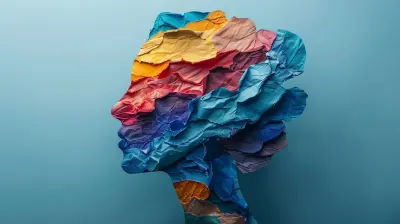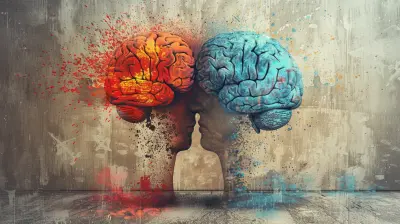Eating Disorders: Mental Illness Beyond the Physical
2 July 2025
Let’s cut the fluff right out of the gate—eating disorders are not just about skipping meals or obsessively counting calories like a human calculator during finals week. Nope. These bad boys are a whole mental health rollercoaster disguised as a “lifestyle choice” or worse, “dieting done right.” Spoiler alert: They’re neither.
Eating disorders are complex, sneaky, and frankly, annoying little monsters that burrow their way into your brain, whispering sweet nothings like “just one more pound” or “you’d feel better if you controlled your food more.” And society? Oh, it just hands them the microphone. Let’s talk about it.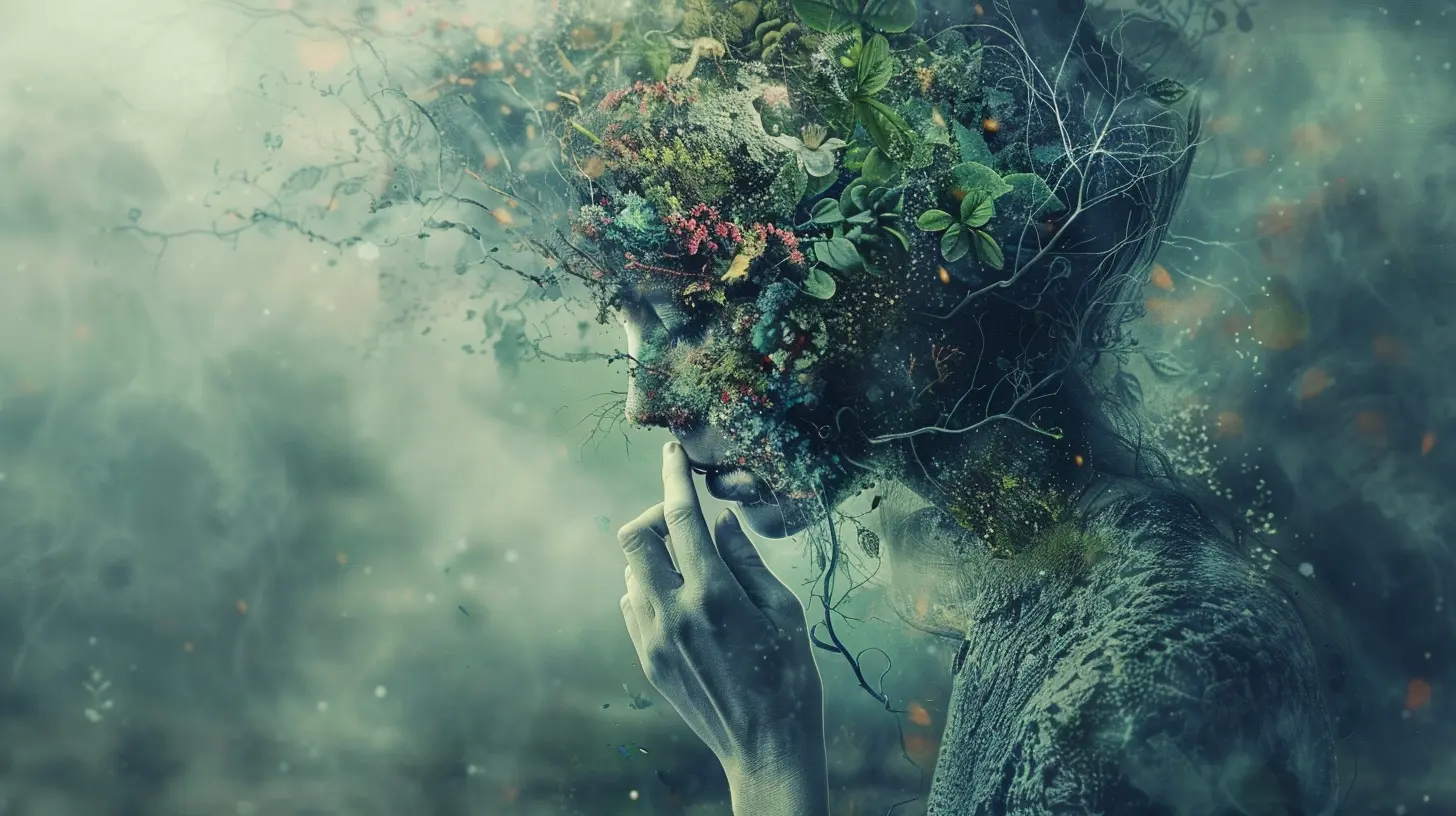
Table of Contents
1. What Are Eating Disorders, Really?2. The Not-So-Helpful Stereotypes
3. Types of Eating Disorders—Because Yes, There’s More Than One
4. Mental Gymnastics: How They Mess With Your Mind
5. The Role of Culture and Society: Thanks a Lot, Instagram
6. Physical Health? Yeah, That Suffers Too
7. So Where’s the Hope?
8. How to Actually Help Someone (Or Yourself)
9. Final Thoughts: A Little Compassion Goes a Long Way
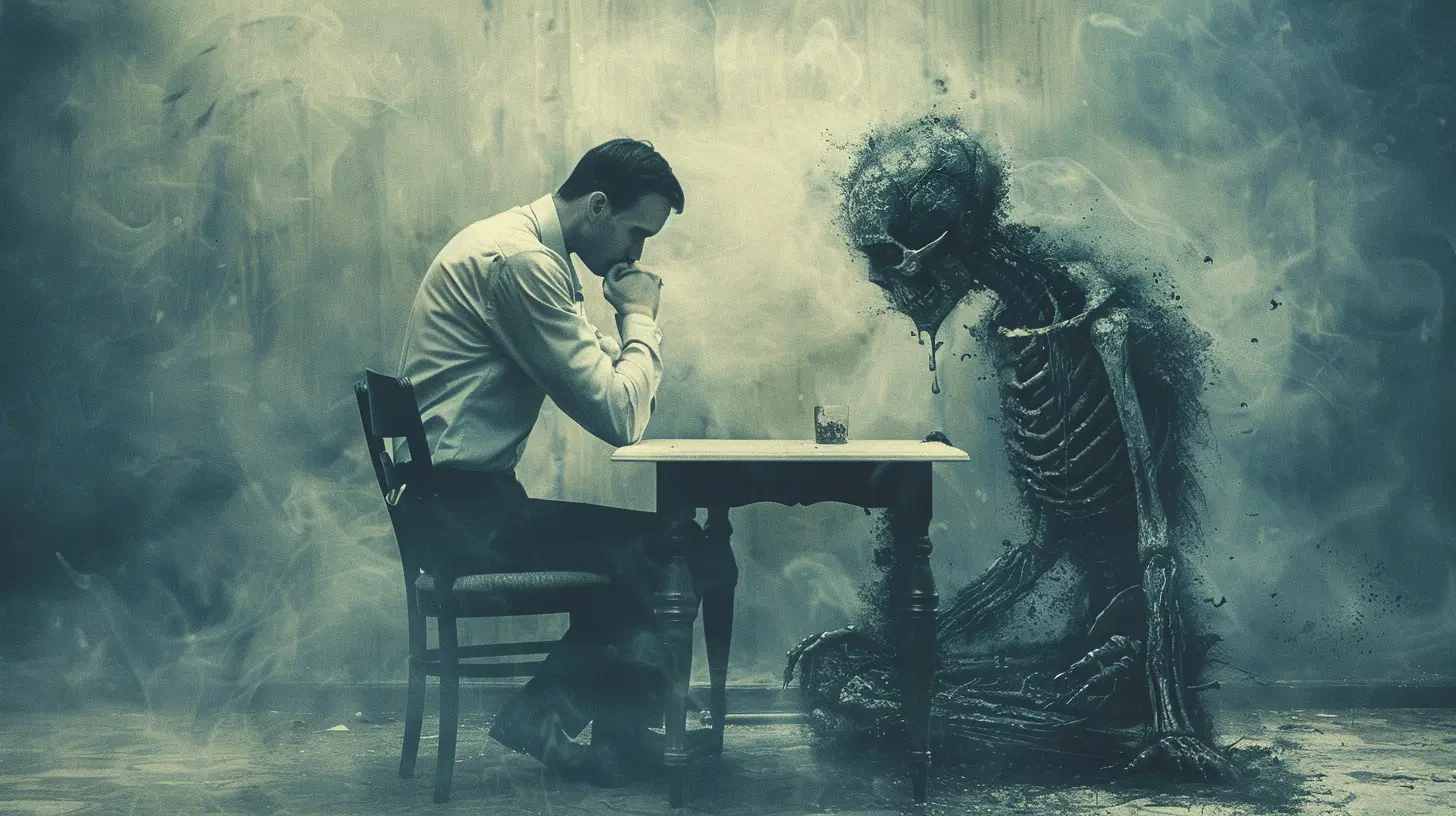
What Are Eating Disorders, Really?
Ah, eating disorders. The misunderstood celebrities of the mental health world. Most people think they know what they are—until they actually meet someone struggling with one, and then suddenly it’s crickets.Eating disorders are serious mental illnesses, not quirky phases you grow out of like your emo stage in 2007. They involve severe disturbances in eating behaviors, often paired with all kinds of intense emotions, distorted thoughts, and, yes, physical consequences. But let’s be clear—the food part is just the tip of the iceberg lettuce.
Behind every “I’m just not hungry” or “I already ate,” there’s often a messy web of anxiety, depression, trauma, low self-worth, perfectionism, and the lifelong quest for control. It’s psychological warfare—and the battlefield is your dinner plate.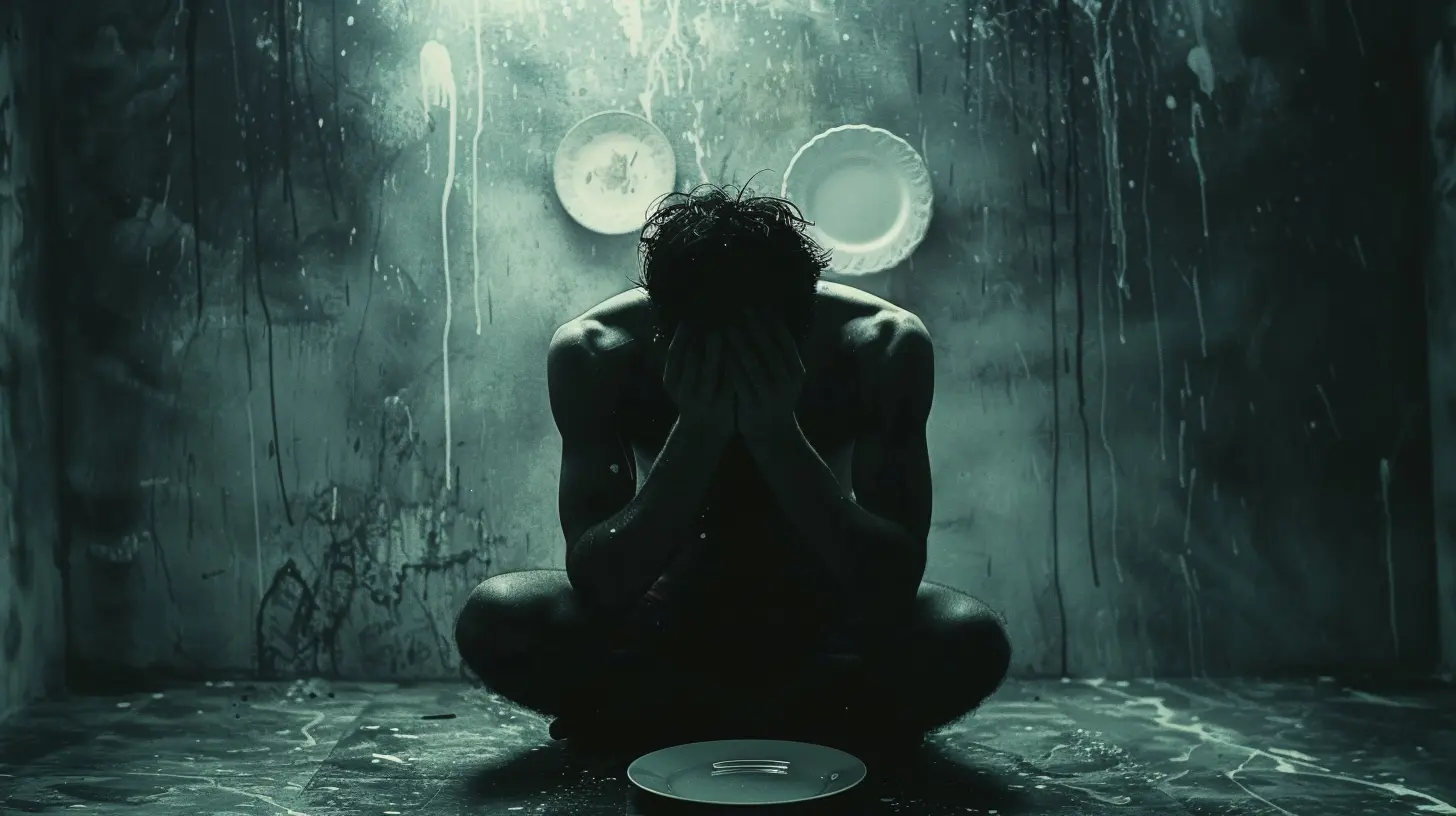
The Not-So-Helpful Stereotypes
You’ve seen the Lifetime movies: a skinny white teenage girl faints during cheer practice. Cue dramatic piano music. While that may be someone’s reality, it’s not everyone’s.Eating disorders don’t discriminate. They affect all genders, ages, races, body shapes, and socioeconomic backgrounds. Yes, even guys. Yes, even people in larger bodies. And no, you don’t have to be underweight to “qualify.”
So next time someone says, “But you don’t look like you have an eating disorder,” kindly hand them a sarcastic trophy inscribed with, “Congrats on Missing the Point.”
Types of Eating Disorders
Let’s take a tour of the not-so-wonderful world of disordered eating. Buckle up, because it's a bumpy (and bizarre) ride.Anorexia Nervosa
This one’s the drama queen of the group—known for extreme food restriction, intense fear of gaining weight, and a distorted body image that straight-up lies to your face. People with anorexia often see themselves as “too big” even when they’re dangerously underweight. It’s like funhouse mirrors, only all the time. In your head.Bulimia Nervosa
Ever felt like you're stuck in a binge-and-purge cycle? Bulimia is all about loss of control—eating large amounts of food in a short time (bingeing), then trying to “undo” it through vomiting, laxatives, fasting, or over-exercising. Basically, it's the brain's version of hitting “undo” on a meal. Spoiler: It doesn’t work that way.Binge Eating Disorder (BED)
Now here’s the most common eating disorder that no one likes to talk about. BED involves frequent episodes of uncontrollable overeating without the purging part. It’s not just “eating a lot” or “having no willpower” (ugh, gross oversimplification). It’s emotional, distressing, and absolutely not fun, despite what junk food commercials may imply.ARFID (Avoidant/Restrictive Food Intake Disorder)
ARFID is like your inner picky eater cranked up to 11. We're talking extreme avoidance of food based on texture, smell, fear of choking, or past trauma. It’s not about body image—it’s about anxiety and intense food aversion. Think less “I’m on a gluten-free diet” and more “I’m terrified of carrots because they once betrayed me.”Other Specified Feeding or Eating Disorders (OSFED)
Because even mental illness can’t resist a miscellaneous category. OSFED covers the serious cases that don’t fit neatly into the boxes above. It’s still real. It’s still dangerous. And no, it’s not “less bad.”Mental Gymnastics: How They Mess With Your Mind
Eating disorders are Olympic-level mental manipulators. They gaslight you more than a toxic ex.They tell you you’re not really sick unless you hit some arbitrary weight. They convince you control means skipping meals. They thrive on secrecy, self-criticism, and shame. Think of them as an evil inner voice that never shuts up and always thinks it’s right.
And get this: many people with EDs also deal with co-occurring mental disorders like anxiety, depression, OCD, or PTSD. Like a surprise party no one asked for, it’s the ultimate emotional clusterstorm.
The Role of Culture and Society: Thanks a Lot, Instagram
Let’s take a moment to thank our modern culture for fanning the flames of eating disorders like it’s a bonfire on social media night.We live in a world where a salad gets more likes than a therapy session, and “clean eating” gets praised more than checking in on your actual health. Between airbrushed influencers, fitness cults, and diet culture dressed up as “wellness,” it’s no wonder people are developing unhealthy relationships with food.
And sure, let’s go ahead and slap “gluten-free sugar-free dairy-free organic kale smoothie bowl” on as many Instagram posts as possible, because who needs actual nutrition when you’ve got a filter?
Physical Health? Yeah, That Suffers Too
Yes, it's a mental illness, but let’s not pretend your body doesn’t get dragged through the mud, too.Eating disorders can lead to:
- Heart issues (yup, your heart doesn’t love skipping meals!)
- Hormonal imbalances (hello, messed-up periods!)
- Gastrointestinal problems (ironic, considering the obsession with digestion)
- Bone loss (osteoporosis in your 20s? Cute!)
- Muscle loss and fatigue
- Weakened immune systems
- And, not to be dramatic—but death. Eating disorders have the highest mortality rate of any mental illness.
So no, it’s not “just about being skinny.”
So Where’s the Hope?
Okay, okay, enough doom and gloom. Yes, eating disorders are scary, messy, and destructive. But they're also treatable. With the right support, recovery is not only possible, it's incredible. And no, it doesn’t mean you’ll be dancing through fields of carbs overnight. But every step counts—even the teeny-tiny ones.Recovery is not linear. It’s more like a toddler learning to walk—faceplants, wobbles, breakthroughs, and all. It involves therapy (individual and group), nutrition counseling, possible meds, and a whole lot of patience. But most importantly? Compassion. For yourself and others.
How to Actually Help Someone (Or Yourself)
So someone you love might be struggling? Or you’re reading this thinking, “Okay… this is uncomfortably relatable”? Here’s what NOT to do:- Don’t comment on their appearance.
- Don’t tell them to “just eat.”
- Don’t make it about you.
Here’s what you can do:
- Educate yourself (congrats, you’re already doing that!)
- Listen without judgment.
- Encourage treatment, not shame.
- Celebrate progress, not perfection.
- Be patient. Like, monk-level patient.
And if it’s you? Please know that reaching out for help doesn’t make you weak. It makes you a badass warrior ready to tell that nasty ED voice to shove it.
Final Thoughts: A Little Compassion Goes a Long Way
If we had a dollar for every time someone misunderstood eating disorders, we could probably fund mental health care for everyone. But hey, awareness starts with messy, real conversations like this one.Let’s stop whispering about eating disorders behind closed doors like they’re Voldemort. Let’s throw compassion around like confetti. And let’s remember: food isn’t the enemy. Shame is.
So whether you’re in the thick of it, supporting someone, or just trying not to believe every diet ad on your feed—be kind. Be real. And maybe, just maybe, eat the damn cookie.
all images in this post were generated using AI tools
Category:
Mental IllnessAuthor:

Gloria McVicar
Discussion
rate this article
1 comments
Odessa McGillivray
This article beautifully highlights the often-overlooked mental aspects of eating disorders. It's crucial to recognize that recovery involves addressing both emotional and physical health. Thank you for shedding light on this important topic and supporting those on their journey to healing!
July 24, 2025 at 4:50 AM

Gloria McVicar
Thank you for your thoughtful comment! I'm glad you found the article valuable in highlighting the emotional aspects of recovery. Your support is much appreciated!
